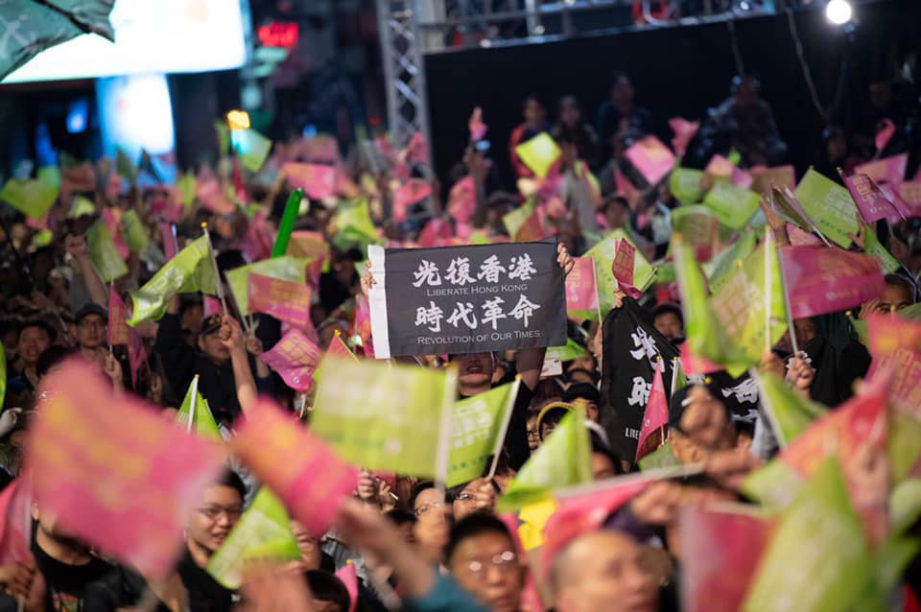A photographer who was visiting Taiwan from Japan recently had a bad trip on LSD and somehow, he chose me to call up for help. I had met him just twice before, to discuss his potential involvement in the collaborative art space I’ve been working on setting up with some friends. I showed him around the neighborhood, and then went off to the legislature to interview a politician—at which point he started phoning me, saying that he was having a bad trip and needed my help. I….uh….what?
I ignored him and finished my interview, at which point I discovered several frantic Facebook messages from his wife.
Alrighty, then. She didn’t know the address where he was staying, but I managed to recall enough details of our conversation to guess where he was. I waited there for an hour, with no sign of him, as his wife grew more and more panicky. Suddenly he ran out of a nearby apartment building and I dashed over.
“Hey! It’s me. You’ll be alright, come on,” I said. We went into his Airbnb.
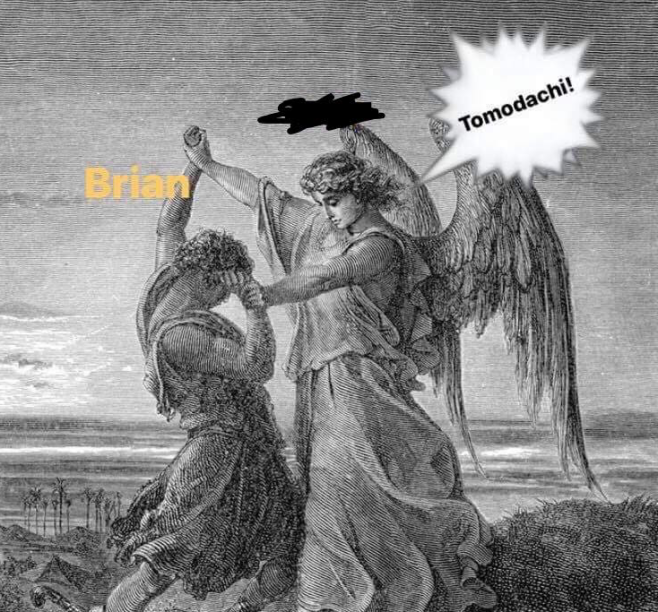
“Brian! Tomodachi! Friend!” he shouted, repeating “friend” in Japanese, and then in English. Now things really began to go south. He attacked me, trying to strangle me, and then ran outside and back in, suddenly unable to recognize me. Then he’d shout “Brian! Tomodachi! Friend!” and try to strangle me again. He’d try to drag me toward a window, as if to throw me out. He threw my phone down the stairs a few times. This went on for the better part of three hours.
Believe it or not, I’m a black belt in Tang Soo Do, but I still can’t subdue someone physically stronger than me at close quarters. And he was way more muscular than I.
At some stage I went to get him some water and returned to find him lying on the street screaming, with a small crowd gathered around him. I just managed to usher him back into the Airbnb before anyone called the police.
Eventually I began to tire. I knew that he would eventually physically overpower me, and that would be the end. So I took off.
The next morning he was totally fine, and had no recollection of what had happened. He turned up at my apartment and I refused to let him in, explaining that I didn’t feel safe around him. Whatever, I’m not going to talk to this guy again. I have no idea how anyone manages to get into a murderous state on LSD without some kind of deep, underlying personal issue.
And this is why you should never do psychedelics alone in a foreign country where you don’t speak the language, kids.

Only a few months ago, it seemed as though we’d see Han Kuo-yu as president of Taiwan and his party take the majority in the legislature, fully restoring the authoritarian Kuomintang to power—a political party that has advocated for Taiwan to cease altogether, by becoming a part of China. During the campaign, the possibility of a resurgent Kuomintang realizing its political vision of unification with China acquired a popular nickname: “national doom.”
It was difficult to avoid a sense of dread that this national doom would also be reflected in personal doom. My weird experiences in the month prior to the election only reinforced this idea that anything might happen. A friend with a long-term illness, who’d seemed to have been on the mend, suddenly died; another friend had a baby, altogether unexpectedly—she’d not realized she’d been pregnant until she’d been about to give birth. I had a brief relationship with someone who had violent tendencies and did too many drugs. All this was around the same time as the crazy guy on LSD tried to kill me.
I may be a negative person, but really I’m simply someone with a pessimistic personality; nothing truly bad has ever happened to me. I have no deep underlying damage. I didn’t think I could be in that relationship, because I didn’t think I could process or work through someone else’s trauma, and had to get out for self-preservation’s sake. But I also felt that I’d been extremely lacking in compassion.
We say kiang in Taiwanese Hokkien to refer to a state of being crazed, deranged, out of control, or tripping on drugs. Of the four elections I’ve covered, this was the most kiang election of them all, and not only because of the circumstances of my personal life. And it was the toughest.
A friend had died, another had given birth, and someone had tried to kill me. I remember thinking: What did this all mean?????? What was the universe trying to tell meeeeeee….????? I spent close to five hours lying in bed one day staring at the ceiling, just trying to process all that had happened. Spent many nights getting completely trashed alone in dive bars. I had this horrible feeling about what the election result would be, superstitiously connecting the events of politics and society with the weird and unsettling crises in my personal life.
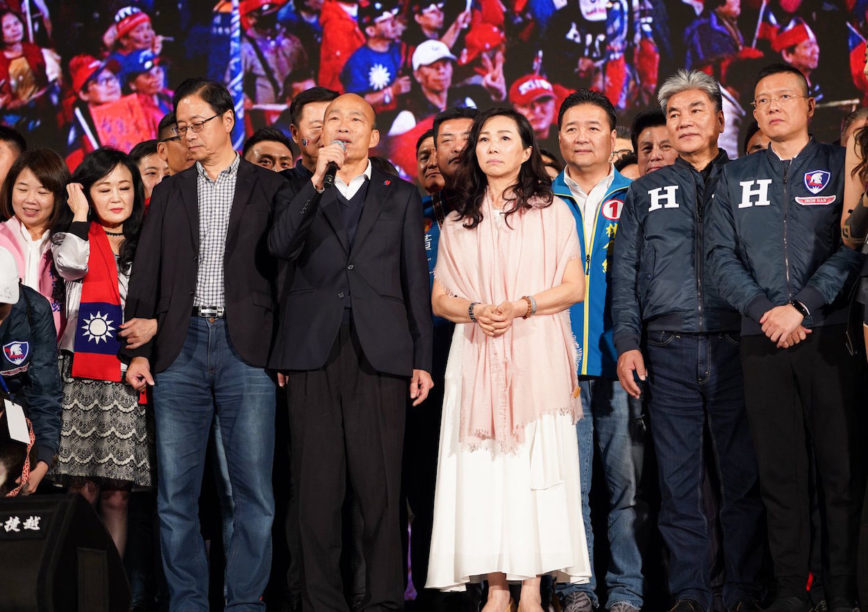 Photo credit: 韓國瑜/Facebook
Photo credit: 韓國瑜/FacebookHan Kuo-yu was a farcical candidate, with a reputation for drinking, gambling, and womanizing, to say nothing of the endless torrent of his misogynistic and racist gaffes. He blamed his failing grades in high school on having become too distracted by the calves of the female classmate sitting in front of him. It’s hard not to laugh when I remember him telling this story on national television.
Han seemed to be unable to answer any question about policy or to demonstrate knowledge of the most basic facts about Taiwan, often answering by attempting to redirect questions to more knowledgeable people, thus earning the nickname of “Telephone Switchboard Operator Han.”
Yet Han had a devoted, fanatical following, largely composed of older voters for whom Han’s misogyny and racism seemed to present no problems. Like other populists, such as Donald Trump, his political incorrectness only seemed to make Han all the more popular.
Would a Han victory mark the rise of right-wing authoritarian populism in Taiwan? Though Taiwan had been defying international trends—for example in electing Han’s opponent, the center-left Tsai Ing-wen, even as right-wing authoritarianism was on the rise globally—would this be the end of the line?
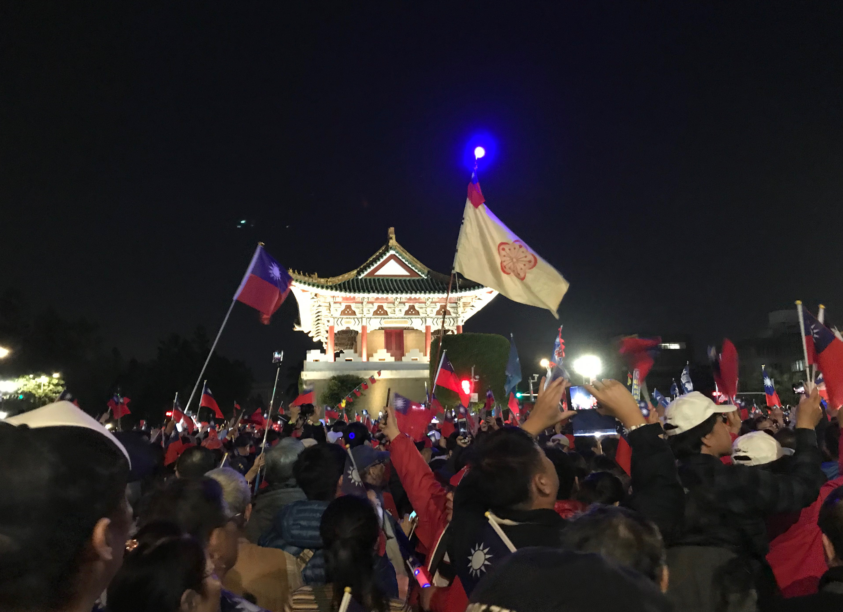
And it didn’t seem like we were getting our shit together to fight the threat.
It’s become increasingly common for me in recent years to see old activist friends—former Sunflower Movement activists, mostly—run for office. But with splits opening up among many of the third parties formed after the Sunflower Movement, it was bizarre and tremendously disillusioning to see the parties I’d once had such high hopes for seemingly in the process of disintegration. We had decided to eat each other alive instead of confronting our shared enemy—the fate of leftists the world over, it seems. It was as if our generation had amounted to nothing.
But this election was very different from 2018 or 2016. For one thing, there was a great deal more international focus on Taiwan during this time.
Hundreds of so-called “parachute journalists” came to cover the election, usually from Beijing or Hong Kong. Often, they would be depending on Taiwanese journalists like me for the local knowledge they lacked.
They came to me in droves. I tried to accept any and all interviews—that seemed better than letting incorrect or misleading perceptions of Taiwan get out there. And I was twice approached by state-run media from authoritarian governments.
Most of the journalists who met with me hadn’t even bothered to Google basic facts about Taiwan beforehand; a huge waste of my time, when I was already juggling publishing 50+ articles and organizing three large-scale events in the space of a week. The incompetence was sometimes astonishing. One journalist refused even to learn where a political rally was being held; I sent him a poster. Later he claimed that he’d attended the rally, but hadn’t recognized the candidate when she’d given her speech. What—was the implication that all of us yellow people just look the same to him?
He was shocked that candidates would be uninterested in taking time out of their schedules two days before the election for interviews that had not been planned in advance. I sighed and explained to him, as patiently as I could, that it really wouldn’t benefit the candidates to tape interviews with him that would be broadcast only to European citizens unable to vote in Taiwan.
Still, it was clear that another important thing had changed: those writing on Taiwan were more diverse than ever.
Since the election wipeout of 2018, I’ve been throwing myself into work completely, to try and stave off the possible doom of the Kuomintang winning the presidency. Positive signs slowly emerged: Han’s campaign suddenly imploded a few months ago, following the outbreak of numerous scandals regarding the Kuomintang’s candidate list, including Han. Awareness of the ongoing protests in Hong Kong was another factor, though it primarily recast old issues in a new light.
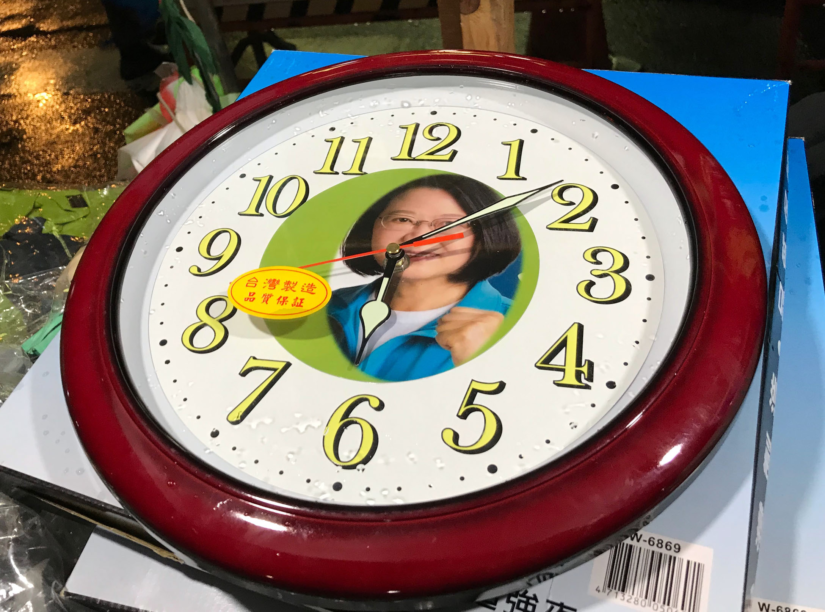
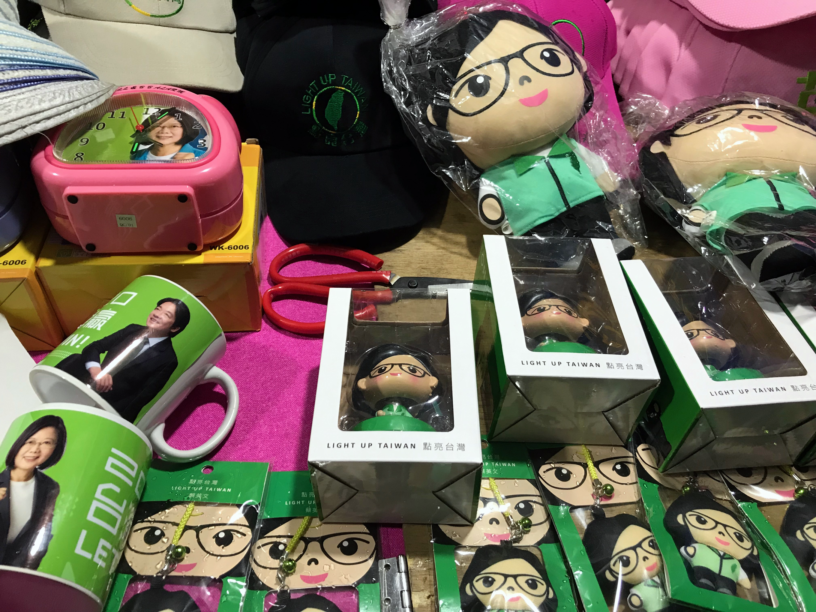
In the end, there was a certain sense of inevitability about the election result: Tsai won reelection by a large margin, and her Democratic Progressive Party continued to hold the legislature. We’ll see four more years of gradualist, liberal social reforms, and pushing for more international space for Taiwan. Right-wing populism has been beaten back, at least for now.
 Photo credit: 韓國瑜/Facebook
Photo credit: 韓國瑜/FacebookBut a lot of us were nervous until the end that the Kuomintang’s sudden implosion couldn’t be real, and we’d be unexpectedly strangled or thrown out the window, after all. Han had looked quite strong, not too long before. And his final campaign rally was nearly twice as large as Tsai’s.
In addition to Tsai’s victory, a number of progressive youth candidates prevailed. Taiwan’s heavy metal singer turned legislator, Freddy Lim, won reelection, and former activist Lai Pin-yu—the same age as me, 28—originally known for participating in social movements in cosplay. Youth parties had torn each other apart, but, overall, they didn’t do the worst.
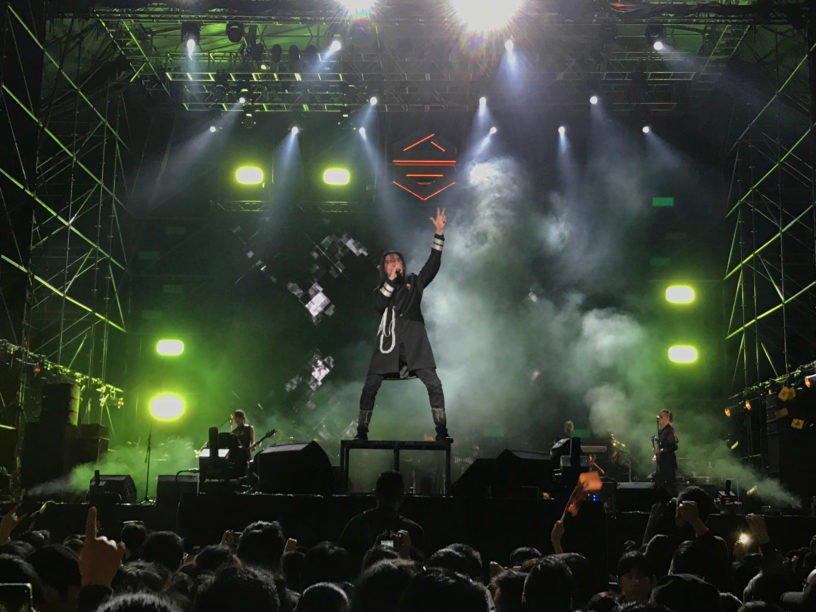
One friend died, another gave birth, all the strange events in my own life had got me to thinking: After all these years of activism and journalism, who am I doing this for, anyway? The dead? The living? Those yet to be born? Myself?
Probably all of these, and none.
Two days after the election, a friend and I went to visit our friend who had given birth. We stayed and chatted about our personal lives, what everyone was doing, the latest films we wanted to see or the books we wanted to read, and our takes on the election results. She had a lot to say about how her family was treating her; they kept telling her that she was now a mother and needed to attend to household matters, instead of finishing school or continuing in her activist work.
As we were leaving though, she made a comment that really stuck with me.
“You know, I feel very pessimistic,” she said, sighing. “I feel very sorry for my son. That I gave birth to him and brought him into this sorry, sorry world.”
“I guess that’s why we need to change it,” I said.
